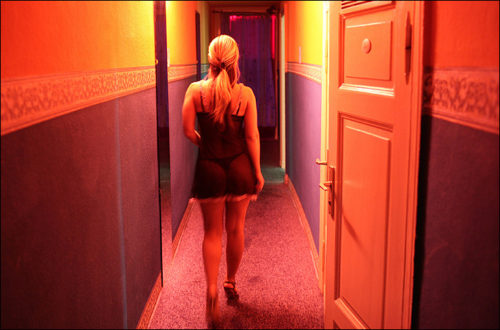
Yesterday the Stuff news portal published one of the most one-sided pieces of pro-Government propaganda one could ever hope to see in a supposed democracy with a free press. It’s an apology piece written by media prostitute Jo Moir, and it aims to erase the historical record of Peter Dunne’s actions to resist all change to the cannabis law in New Zealand.
‘Prostitute’ is perhaps the wrong word, as most New Zealand sex workers will not allow you to piss on them and they therefore have more shame than Jo Moir, who will, it appears, write absolutely anything for money. Jo Moir has no shame, and this is why she has produced a one-sided piece of propaganda worthy of a Soviet-era newspaper.
It was titled ‘Peter Dunne feared for his and his family’s safety and may have broken the law allowing medicinal cannabis to be imported’ and sought to present a crafted image of Dunne as someone who is not responsible in any way for the current illegal status of cannabis medicine.
The article tells some transparent lies, such as “The hate mail, abuse and threats all started when Dunne approved medicinal cannabis for [Nelson teenager Alex Renton].”
In reality, medicinal cannabis users have hated Peter Dunne ever since he made it a condition of his support of the Labour Government after the 2005 General Election that absolutely no change be made to the regime of cannabis prohibition.
The article then quotes Dunne as saying he “almost” has respect for medicinal cannabis users, and also gives him a platform to blame recreational cannabis users for “hijacking” the cannabis law reform debate.
This piece of excrement masquerading as a piece of journalism even quotes Dunne, as if it was a self-evident truth, that the only reason why he has received this abuse was because of the apparently coincidental fact that he was the sign-off for medicinal cannabis in New Zealand.
It makes no mention at all of Dunne’s well-known demand that if his party should support the Labour Government after the election of 2005 there would be no progress on cannabis law reform.
Moir can’t even take Dunne’s cock out of her mouth long enough to ask basic journalistic questions that a Year 11 English student could have thought up, like: “Are not all these death threats perhaps a sign that the cannabis laws you have forced on us since 2005 have caused a large amount of genuine suffering and people are right to be angry about it?”
Or: “Do you regret the fact that, given there are at least 37 opioid overdose deaths every year in New Zealand on average and given that legalising medicinal cannabis is known to reduce opioid overdose deaths by 24.8%, your actions to prevent medicinal cannabis law reform in New Zealand since 2005 have caused the easily preventable deaths of at least 100 Kiwis?”
The sycophantic article makes no mention at all of all the people who have suffered under our barbaric cannabis laws, or of those who continue to suffer. The last two lines of it even goes as far as to recount Dunne’s hope that he can escape the consequences of his political crimes.
Make no mistake – Peter Dunne is a criminal. His actions since 2005 to resist cannabis law reform have killed at the very least a hundred New Zealanders by withholding a needed medicine, and have caused between three and seven billion dollars worth of bureaucratic waste. He should be tried on a hundred counts of manslaughter.
It’s probably understandable that the Dunne family received death threats. How could any concerned mother whose child had been psychologically destroyed by the untested mystery drugs known as “legal highs” not be angry at a politician who saw the destruction of that child as an opportunity to make money?
It must have crossed the minds of a large number of desperate people that doing physical harm to Peter Dunne might be the only way their cries for help would ever be heard.
The actions that Peter Dunne has taken as an MP since 2005 to hinder progress in cannabis law reform has caused the deaths of hundreds of Kiwis. If the media of this country were not lower than street whores, they would have held this remorseless psychopath to account.



